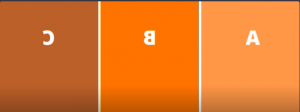Learning in lock-down: online tourism education for teachers and students
It has been over three months since Covid-19 hit Europe and forced many countries to lock themselves down: large groups were not allowed anymore, #stayhome became the new normal and public transport and the streets have never been so empty. The tourism industry has been affected by many natural disasters, as well as political and economic turmoil, but when the whole world locked down due to the Coronavirus, many challenges were faced by European destinations.
The Next Tourism Generation Alliance focuses on the necessary digital, green and social skills that are needed in tourism and related sectors now and in the future. Yet how do you keep the next generation interested, engaged and focused in a time when barely any tourist activities can take place? To answer this question, we spoke with Lorainne van Liere, who works for the NTG project and is a teacher in the E-Lab at Breda University of Applied Sciences. In this blog, Lorainne explains how she motivated first-year students to stay enthusiastic about this industry and what skills were required of her as well as the students while teaching continued via multiple online practices.
How did Breda University of Applied Sciences prepare for online education?
In mid-March, the government forced all universities to close their buildings and prepare education online. Our academy of Tourism had just finished the last week of the semester which enabled us to transform our ‘offline’ education to online education within one week. All staff began to work with Microsoft Teams earlier in the year which made it easy to decide that this would become our communication tool with colleagues, but also the platform to provide lessons to our students.
Even though colleagues knew what they were going to teach in the upcoming months in terms of content, the major challenge was how they were going to teach it. The basic functionalities such as sharing documents and editing PowerPoints in Microsoft Teams were clear for all of us, but how to provide online classes in this programme was quite a challenge for many colleagues. Therefore, a group of Teams experts from Breda University provided bite-sized learning sessions on how to use this collaborative software to provide online classes and webinars, with tips and tricks as well as complete guidelines to make sure everyone was able to start the week afterwards without too many obstacles.
And what about the students?
Students were also not allowed to come to the university anymore. We sent them daily updates, exams were rescheduled and they also got guidance on how to prepare for online education in Teams. All they needed was a working laptop, the Teams software and a stable internet connection .
What was the most challenging for you as a teacher?
The first week was particularly challenging as this different way of working was new for all of us. I am teaching the E-Lab module which is a course where students work on their digital skills: they have to create a website, do social media analysis, beginner programming and come up with a concept for a mobile application related to tourism. However, every time I wanted to give an example of the tourism industry, it did not seem to be relevant. For example, overtourism is barely visible anymore as all countries and cities that have experienced mass tourism were or continue to be in lockdown e.g. Amsterdam and Paris.
However, this scenario enabled us as teachers and students to think of future ways of managing tourism more sustainably. Digital technologies are extremely important nowadays, and this created a challenging module for students as they had to think about implications moving forward. For example, in relation to visitor attractions: how can visitor attractions still create and provide engaging and exciting products if physical limitation(s) remain. We had to challenge the students to improve their knowledge and green and social skills to deliver sustainability and minimize the negative effects of tourism.
Also, we could not force students to turn on their camera while in class and/or whilst presenting, which made engagement difficult. In a physical classroom setting, an instructor can easily see if people understand the content, engage with the resources and you can let them lead as well. However, online teaching makes it very challenging to engage with students. However, Teams offers multiple options to create more interaction such as the chat, polls and screen sharing. It was a learning curve for me!
What were the reactions from students?
The students were quite surprised by the smooth transition in educational provision. However, it is hard for some students to motivate themselves because they are often alone and have to communicate digitally. Nevertheless, this transition has enabled many students to become more independent and responsible learners.
In the E-Lab, the assignments have to be carried out in groups of students that have never worked together. Students are asked to work with other learners and this can put them out of their comfort zone, simulating the case that can happen in the real world of employment in the industry. Students perceive this task as quite tricky and risky sometimes, but group work is good for the development of their social skills and future employability. Essential skills such as empathy, communication and collaboration were of high importance during this module for everyone involved. So besides enhancing digital skills, this module was key to developing social and green skills of the students.
How do you keep students motivated in relation to the future of tourism and their careers?
Tourism is central to most of our lives in Europe. Often, people go on holiday more than once a year domestically and/or internationally. It is not considered a luxury product anymore, but for most that can afford a break, it is deemed a need. I challenge my students to ask themselves as the next generation of industry leaders and workers, what the future of tourism should look like and how they can contribute to the rebuilding phase to make transformative changes.
As highlighted in the NTG Covid-19 perspective blogs, one of the most important tasks now is to prepare employees for a futuristic way of working. We need to all rethink the foundations, not only within the industry but most definitely from an educational point of view. To do this, we need to help teachers/trainers, students and business representatives to acquire the knowledge and skills necessary to manage the impacts of the Covid-19 pandemic, thus providing significant support for the progressive transformation of business models and operational activities in the direction of sustainability.
Further, multiple modules also involve guest lectures from experts in the industry. These are also motivating factors for students. The connection with the industry will remain important.
How do you reflect on your performance as an online educator?
As said, it has been a tough challenge to move from offline to online education at such a fast pace. In class, it is often a manageable task to help students working in groups who are having trouble with co-operation. I, as a teacher, can often stimulate all students to work together or have a small talk with the students that seem to provide less effort in a group. However, facilitating online group assignments has been quite difficult, as some students were ‘ghosting’. This means being online but not there: their status was seemingly present in the class or group assignment, but the students were effectively absent and not responding to questions or calls from teammates.
Therefore, I think the following action points should be taken into consideration in the next academic year when universities will provide online or blended education:
- Inform your students before the start of the module of your specific ground rules and expectations:
- Think of camera on, microphone off
- Asking questions by the raising hand function in Teams
- Interaction: the teacher will ask questions and expects active participation in discussions
- Create specific rules and consequences for students that are ghosting, a red alert procedure could be developed where team members make their own rules and digitally sign the document. This could prevent ghosting students
- Think of ways of how to create engagement in your online classes:
- In Teams, the chat function is a great tool to create interaction. For example, students can ask questions and you can do a short quiz. A great example was a group of students who had to present a concept in a way of a quiz. They created a background with A-B-C and people were asked to put this background in Teams and turn on their camera to take part in the quiz.
- Show empathy toward students. You cannot predict their situation at home, in terms of Wi-Fi connection, family or living situation. Record your lecture, for example, so students can still have a look at it afterwards. Also create a safe place online, so students trust you and can inform you beforehand if they are not able to attend an online class.
Follow the efforts of the Next Tourism Generation via our website, Facebook, Twitter | #NTGskillsalliance or via LinkedIn





No Comments